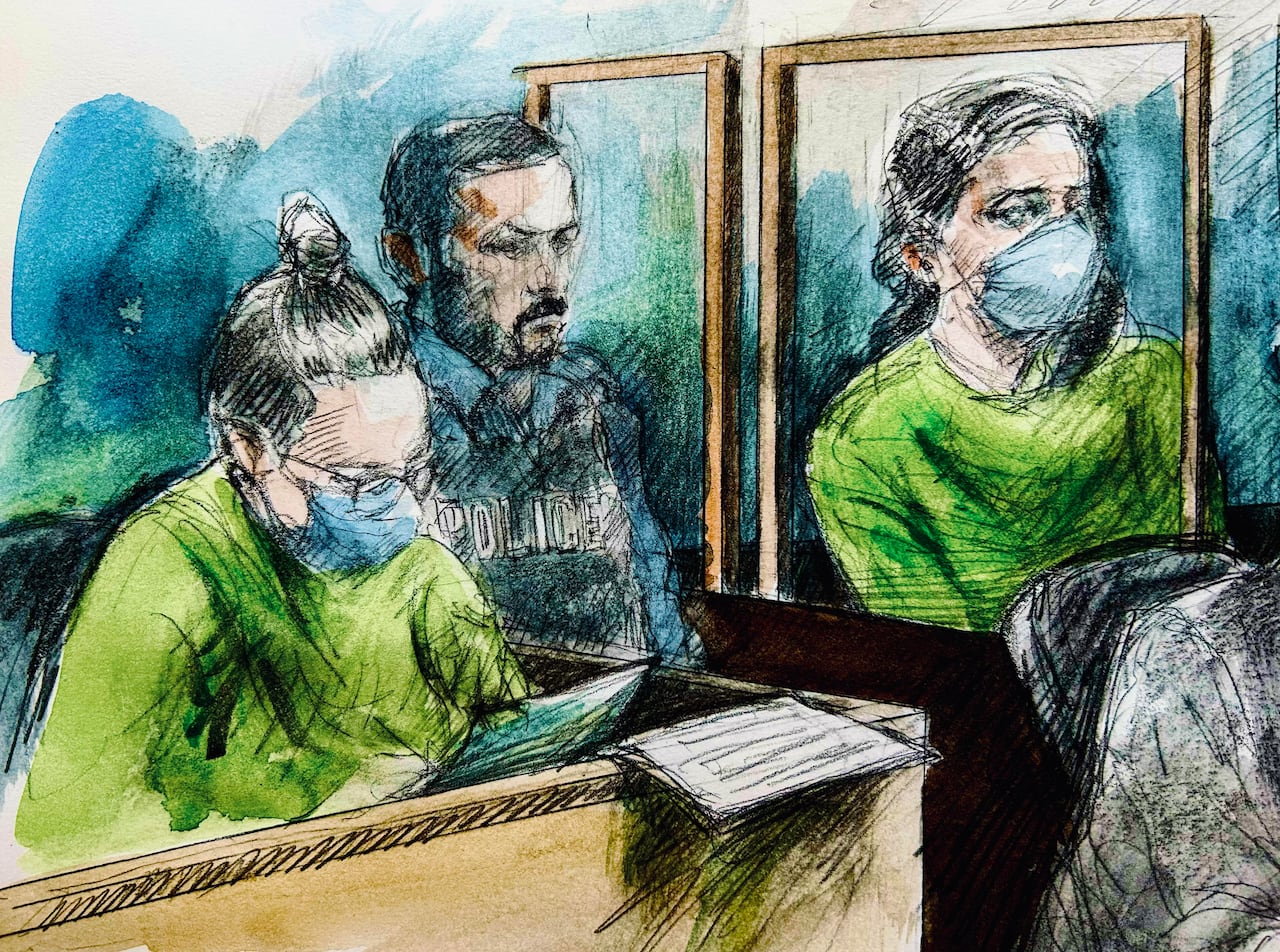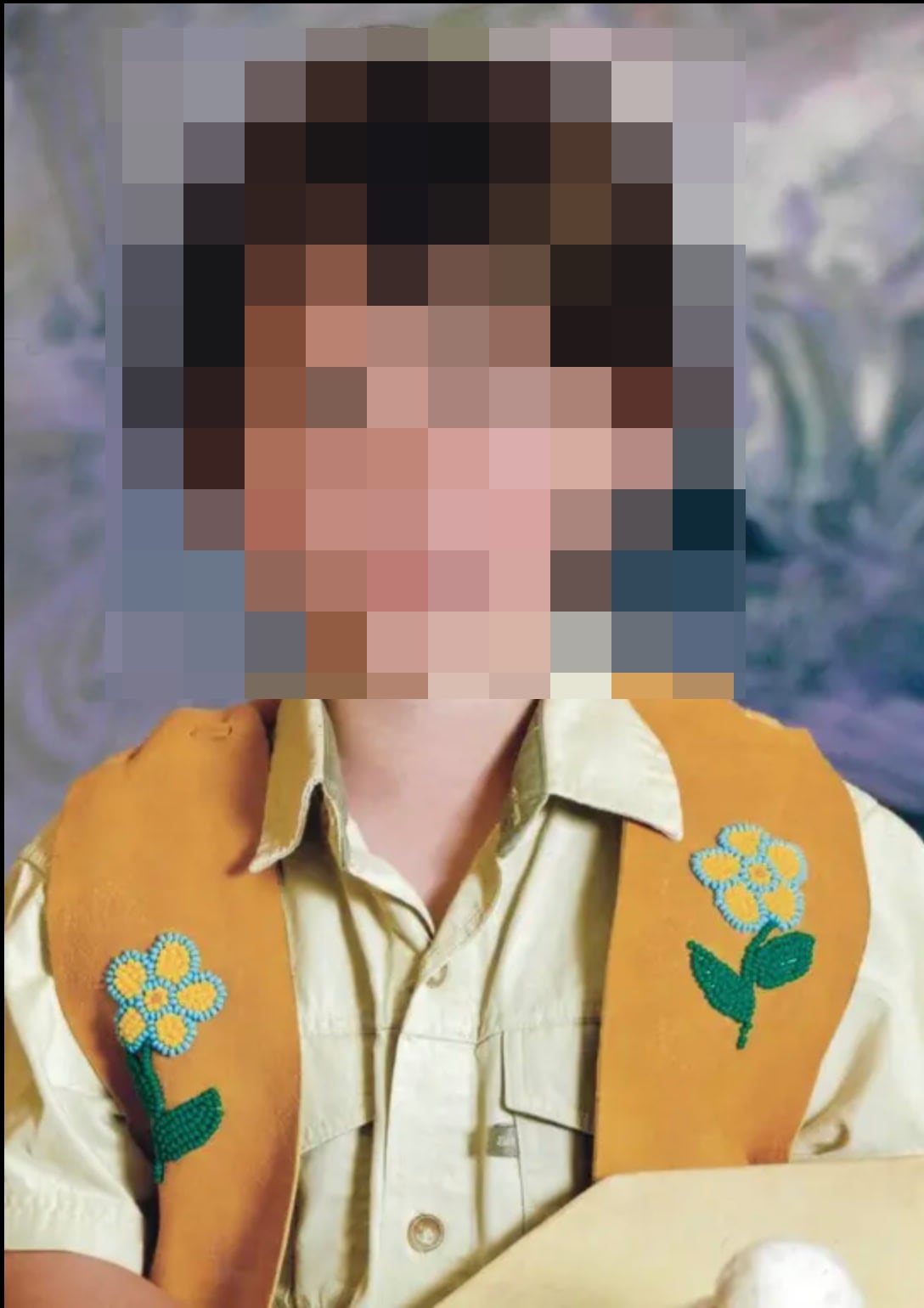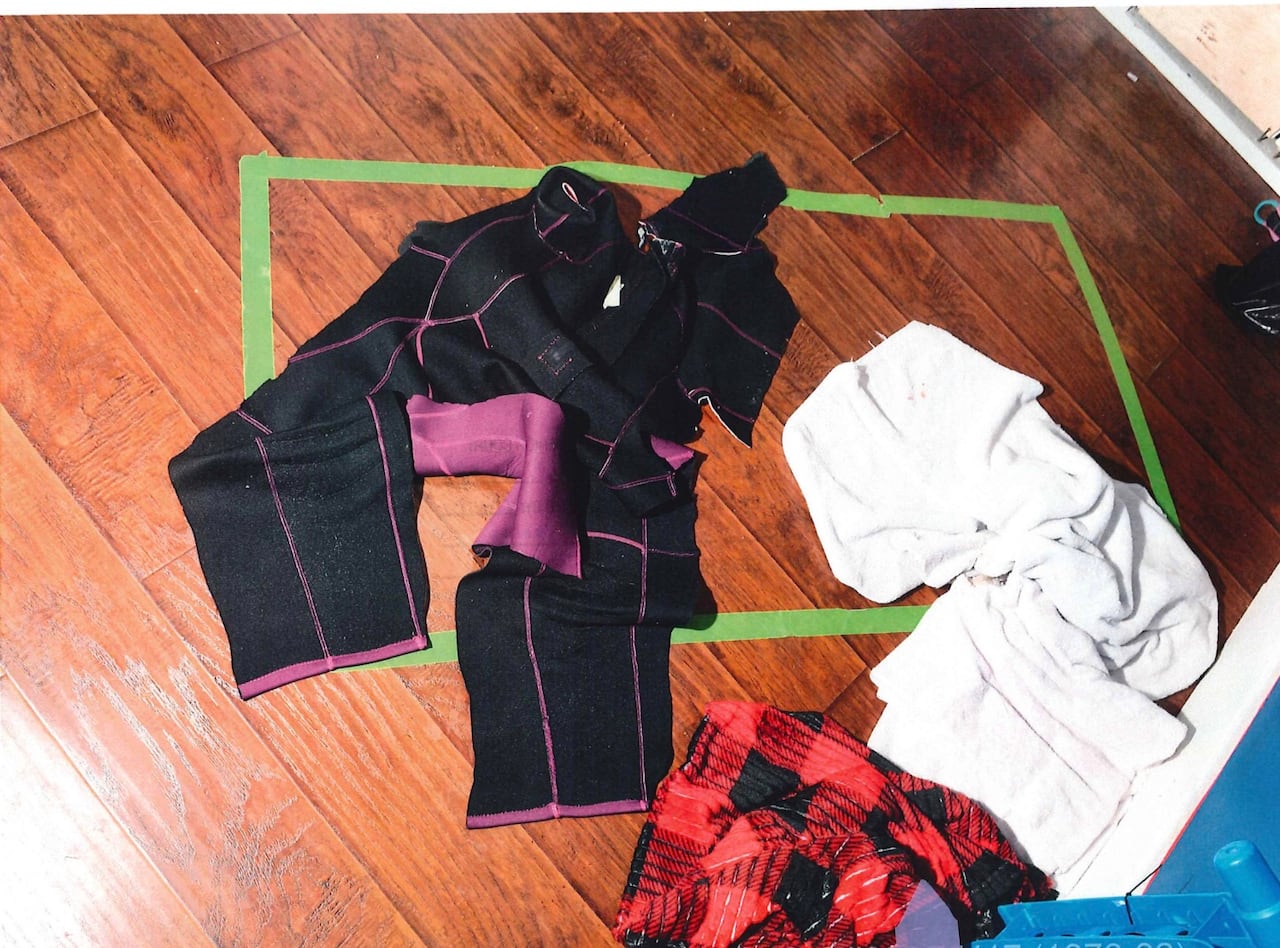WARNING: This story details allegations of child abuse.
The psychiatrist for a 12-year-old boy who was in the care of two Burlington, Ont., women has testified she urged the couple to take him to the emergency room multiple times before his death in 2022, but they refused.
The boy’s health was worsening and he wasn’t eating, Dr. Shelinderjit Dhaliwal told the weeks-long murder trial for Brandy Cooney and Becky Hamber in Milton.
“If the family brought him to the emergency department, we wouldn’t be going through this and the boy would be alive,” Dhaliwal said in the witness box.
Cooney and Hamber are charged with, and have pleaded not guilty to, first-degree murder of the boy they were trying to adopt. He is referred to as L.L. in court as his identity is under a publication ban to protect the name of his younger brother, known as J.L.
The two are also charged with confinement, assault with a weapon — zip ties — and failing to provide the necessaries of life to J.L., which they’ve also pleaded not guilty to.
The judge-only Superior Court trial began last month and is expected to continue into December.
The Indigenous boys, who are about two years apart in age, were wards of the Children’s Aid Society (CAS) of Ottawa, the city where they were born. In 2017, they were relocated to Burlington to live with Cooney and Hamber, who were trying to adopt them.
The trial has heard from a number of doctors and therapists who saw L.L. and J.L. as patients or interacted with Hamber and Cooney about their care. The couple claimed the boys had extreme behavioural issues and, towards the end of L.L.’s life, that he had an eating disorder.

L.L. was Dhaliwal’s patient from January 2022 until he died that December.
He was found by paramedics on the cold floor of his small basement bedroom, soaking wet and emaciated, and not breathing. He died soon after in hospital. A pathologist has testified he could not determine the cause of death, but didn’t rule out malnutrition or hypothermia.
L.L. was severely malnourished, weighed less than he did when he was six years old and had stopped growing, the court has heard.
Psychiatrist says boy told her he turns ‘fears into anger’
Dhaliwal said the women brought L.L. into her clinic only once, at the beginning of 2022. The only other time she saw him was virtually in June that year. At that appointment, Hamber said, she had to lock food away or he would “binge eat.”
Referring to her notes, Dhaliwal said L.L. told her he had difficulty expressing his emotions.
“‘I’m anxious about what the day is going to bring,’” the psychiatrist quoted L.L. as saying in June. “’I turn my fears into anger.’”
That’s the last time she directly spoke with him, Dhaliwal testified.

Every other appointment was with Hamber over the phone or virtually, the psychiatrist said. That summer and fall, Hamber reported L.L.’s condition was deteriorating.
By October, Hamber told her L.L. was “‘ruminating’” (regurgitating food) “‘all over the bed’” every night, was unable to keep any food down, was peeing “‘all over his room’” and was not using a camping toilet she’d set up in there.
In November, Hamber reported L.L. had “‘hit rock bottom’” and was being cared for “‘like a baby,’” said Dhaliwal.
Every appointment, she said, she pushed for Hamber and Cooney to bring L.L. to the hospital so he could be fully assessed, monitored and fast-tracked to services like an eating disorder clinic. Dhaliwal said she explained that she was not a medical doctor who treated physical health conditions, and that’s who he needed to see.
Every time, Hamber said no because it would be too traumatic for him or he wouldn’t be seen in a timely manner, Dhaliwal testified. Hamber also declined to take him to his family physician, Dr. Greame (Stephen) Duncan.
Process to get boy into eating disorder clinic had begun
Dhaliwal began the process to get him into an eating disorder clinic that fall, ordering bloodwork and other tests, the results of which were sent to Duncan. He admitted earlier this week he could have done more to intervene in L.L.’s care and didn’t see him until Dec. 13, eight days before the boy died.
Hamber’s lawyer, Monte MacGregor, pushed Dhaliwal on what she could have done differently, such as reporting her concerns to the CAS. She said she didn’t do that because with every other patient the CAS is involved with, it reaches out to her first if child abuse is suspected.
The CAS never contacted her, Dhaliwal said.

But she emphasized she did tell Hamber and Cooney over and over again to bring L.L. to the hospital. Instead, they waited until their next appointment with her to voice more concerns.
“What would any parent do if their child is vomiting and can’t keep anything down?” Dhaliwal said. “I wouldn’t wait to see a psychiatrist. I would seek out medical help.”
MacGregor asked her why she didn’t refer L.L. to an eating disorder clinic sooner.
“That wouldn’t have saved him,” Dhaliwal responded. “The hospital would’ve saved him.”
If you’re affected by this report, you can look for mental health support through resources in your province or territory .






